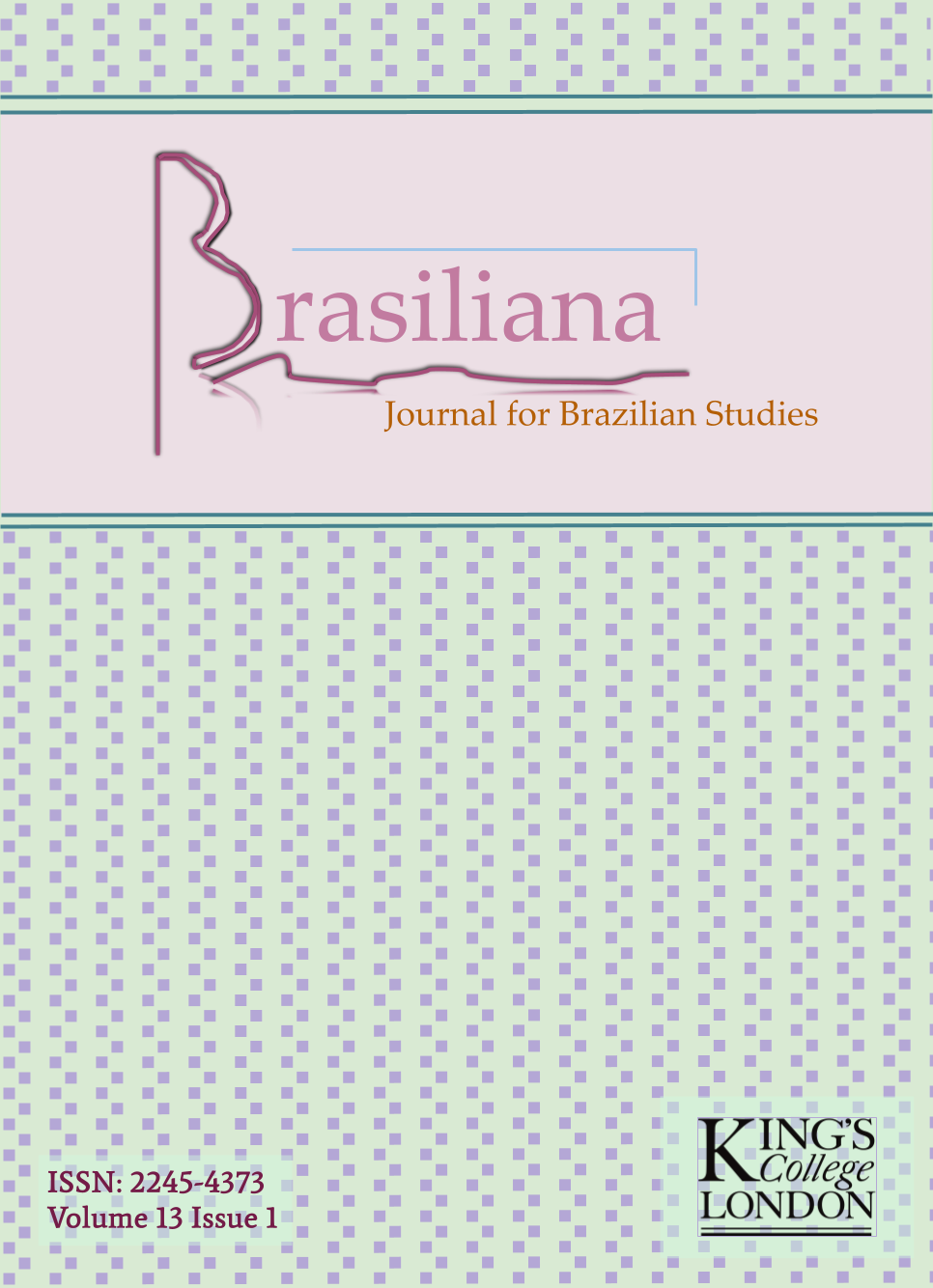A disciplina do próximo semestre e a fabricalização do trabalho docente na educação superior privada no Brasil
Main Article Content
Abstract
Objective: To discuss “discipline” as a multidimensional and peculiar component in the study of the fabrication of teaching work in private higher education institutions in Brazil. Method: quantitative and qualitative research with 65 respondents (higher education professors) from Belém do Pará (metropolis in the Amazon), through interviews and statistical sample to analyze the discipline at work, either as an area of knowledge taught by a professor and/or observance strict adherence to present rules, under the context of “flexible management” (adaptable to changes in links, processes, content and work execution). Results: the research identified an increase in professional and subjective demands for the permanence of professors in the Institution: 1) in the acquisition of new skills, abilities and administrative tasks; 2) greater involvement in educational and institutional activities and; 3) discipline with deadlines and use of institutional performance indicators, which translate the acute process into forms of co-option, control, exploitation and present uncertainties. Conclusion: work management assumes the role of a competitive game that urges individualism, the performer capable of competition, the modeling of a type of teaching worker: obedient, market professional, without political-social involvement, of a self-manager. Limitations: resistance from private higher education institutions to authorize research access to professors' workspaces and observation of managers and professors' daily work.
Article Details
![]()
Articles published in Brasiliana are licensed under a Creative Commons Attribution-NonCommercial-NoDerivs 3.0 Unported License.
When publishing open access, the author signs an author publishing agreement in which they retain copyright and give Brasiliana the right to publish the article. Our Open Access publications are distributed under the terms of the Creative Commons Attribution 4.0 International License, which permits unrestricted use, distribution, and reproduction in any medium, provided the original work is properly cited.
References
Alves, G. (2007). Formas de reestruturação produtiva. IN Alves: Giovanni. Dimensões da reestruturação produtiva: Ensaios da sociologia do trabalho. Londrina: Práxis.
Antunes, R. (2006). A Era da Informatização e a época da Informalização: riqueza e miséria do trabalho no Brasil. In: Antunes, Ricardo (Org.). Riqueza e Miséria do Trabalho no Brasil. São Paulo: Boitempo.
Antunes, R. (2009). Século XXI: Nova Era da Precarização Estrutural do Trabalho? (In) Antunes, R. e Braga, R. (Org.) Infoproletários – degradação real do trabalho virtual. Boitempo.
Bessant, J.; Tidd, J. (2009). Inovação e Empreendedorismo. Porto Alegre: Bookman.
Bosi, A. de P. (2007). A precarização do trabalho docente nas instituições de ensino superior do Brasil nesses últimos 25 anos. Educ. Soc., v. 28, n. 101, 1503-1523.
Disponível em: http://www.scielo.br/scielo.php?script=sci_arttext&pid=S0101-73302007000400012&lng=en&nrm=iso. Acesso em: 10 maio. 2017.
Bottomore. T. (2001). Dicionário do pensamento marxista. Rio de Janeiro: Jorge Zahar.
Brasil. (1996). Lei nº 9.394, de 20 de dezembro de 1996. Estabelece as diretrizes e bases da educação nacional. Disponível em:
http://www.planalto.gov.br/ccivil_03/Leis/QUADRO/1996.htm. Acesso 13 jun. 2020.
Brasil. (1996) Sistema de regulação do Ensino Superior (e - MEC). Disponível em:
http://emec.mec.gov.br/. Acesso em 1º de fevereiro de 2020.
Castells, M. (2005). A sociedade em Rede. 8ª ed. São Paulo: Paz e Terra.
Galeazzi, I.; Holzmann, L. (2011) Precarização. In: Cattani, A. D.; Holzmann, L. (Orgs.) Dicionário de trabalho e tecnologia. Porto Alegre: Zouk.
Gramsci, A. (2010). Americanismo e fordismo. São Paulo: Hedra.
Hamel, G.; Prahalad C. K. (1995) Competindo pelo futuro: estratégias inovadoras para obter o controle do seu setor e criar os mercados de amanhã. Rio de Janeiro: Campus.
Hammer, M. (1997). Além da reengenharia: como organizações orientadas para processos estão mudando nosso trabalho e nossas vidas. Rio de Janeiro: Campus.
Hoper Educação. (2009). Análise Setorial do Ensino Superior Privado - Brasil.
Hoper Educação. (2021). Análise Setorial da Educação Superior Privada Brasil. 14ª edição.
Harvey, D. (2010). Condição Pós-Moderna. 19ª ed. São Paulo: Edições Loyola.
Kaplan, R. S. e Norton, D.P. (1997). A Estratégia em Ação: Balanced Scorecard. Rio de Janeiro: Campus.
Linhart, D. (2013). Modernização e precarização da vida no trabalho. In: Antunes, R. (org.). Riqueza e miséria do trabalho no Brasil. (Vol. 3). São Paulo: Boitempo.
Marx, K. (2003). Contribuição à Crítica da Economia Política. São Paulo: Martins Fontes.
______. (1996). O capital: crítica da economia política. (Livro 1. Tomo 2). (Coleção Os Economistas). São Paulo: Nova Cultural.
Mészáros, I. (2004). O Poder da Ideologia. São Paulo: Boitempo.
Oliveira, E. de. (2004). Toyotismo no Brasil – desencantamento da fábrica, envolvimento e resistência. São Paulo: Expressão Popular.
Poder360 (2022). Mercado de ensino superior tem concentração recorde. Disponível em: https://www.poder360.com.br/economia/mercado-de-ensino-superior-tem-concentracao-recorde/. Acesso em:
Reis, E. J. F. B. dos et al. (2006). Docência e exaustão emocional. Educ. Soc. v. 27, n. 94, 229-253. Disponível em:
http://www.scielo.br/scielo.php?script=sci_arttext&pid=S0101-73302006000100011&lng=en&nrm=iso. Acesso em 03.04.2015
Rodrigues, C. H. R.; Santos, F. C. S. (2001). Empowerment: ciclo de implementação, dimensões e tipologia. Gest. Prod. V. 8, n. 3, 237-249. Disponível em:
http://www.scielo.br/scielo.php?script=sci_arttext&pid=S0104-530X2001000300003&lng=pt&nrm=iso>. Acesso em 10.06.2018.
Salati, P. (2019) Gigantes do setor de Educação investem em aquisições para melhorar resultados. Economia. UOL. Dsiponível em:
https://economia.uol.com.br/noticias/investing/2019/11/14/gigantes-do-setor-de-educacao-investem-em-aquisicoes-para-melhorar-resultados. Acesso em: 14.11.2019
Santos, S. D. M. dos. (2012). A precarização do trabalho docente no Ensino Superior: dos impasses às possibilidades de mudanças. Educ. rev. n. 46, 229-244. Disponível em: http://www.scielo.br/scielo.php?script=sci_arttext&pid=S0104-40602012000400016&lng=en&nrm=iso. Acesso em: 03.04.2015
Senge, P. M. (2006). A quinta disciplina: arte e prática da organização que aprende. 21ª ed. São Paulo: Best Seller.
Sennett, R. (2006). A cultura no novo capitalismo. Record.
Sguissardi, V.; Silva Júnior, J. R. (2009). Trabalho intensificado nas federais: pós-graduação e produtivismo acadêmico. Xamã.
Wright, E. O. (2015). Análise de classes. Revista Brasileira de Ciência Política, nº17. Brasília, Maio - Agosto de 2015, 121-163.
https://doi.org/10.1590/0103-335220151705
Terra (2019). Fusões e aquisições na educação devem ir além da due diligence tradicional.
Disponível em: https://www.terra.com.br/noticias/dino/fusoes-e-aquisicoes-na-educacao-devem-ir-alem-da-due-diligence-tradicional,8cdd07bfbdc0a5abf5f2fa30716213e9790zxq63.html. Acesso em: 10.12.2019

